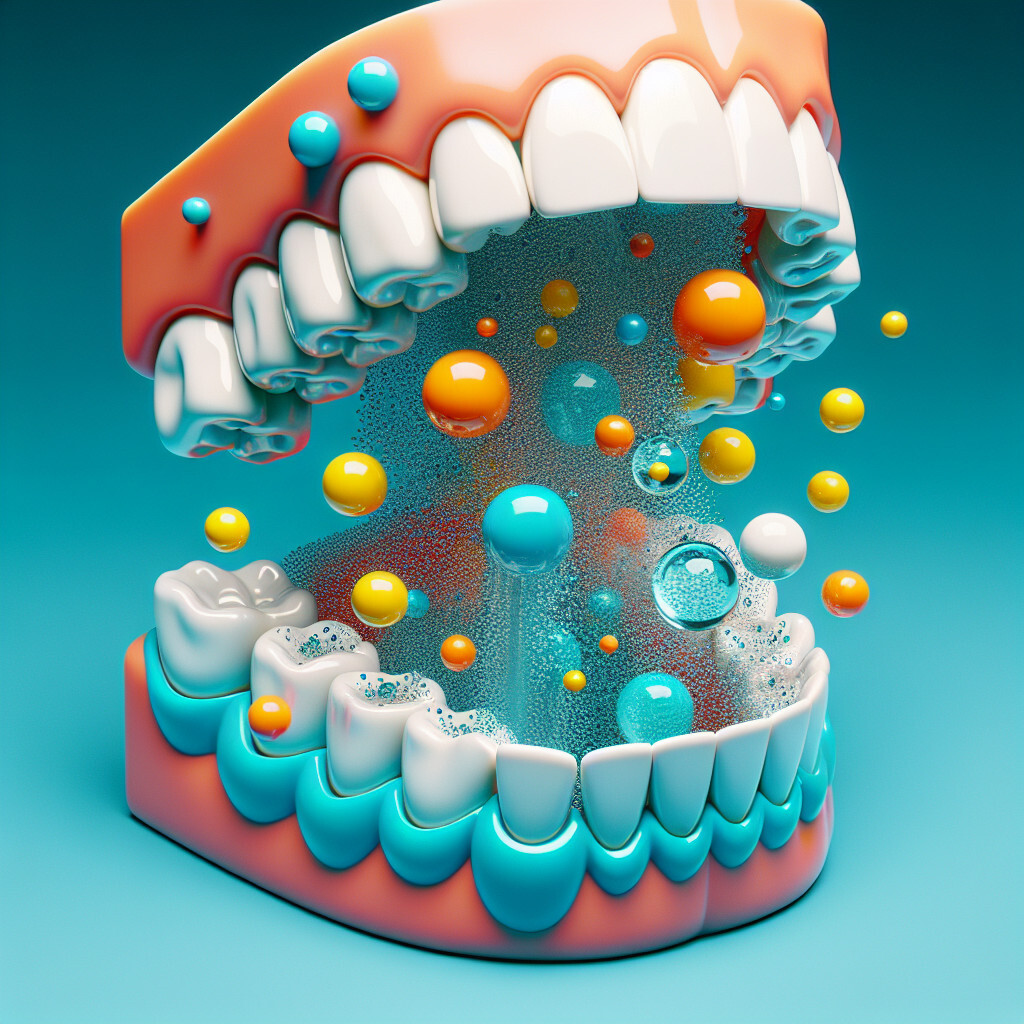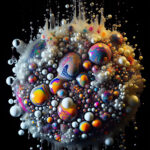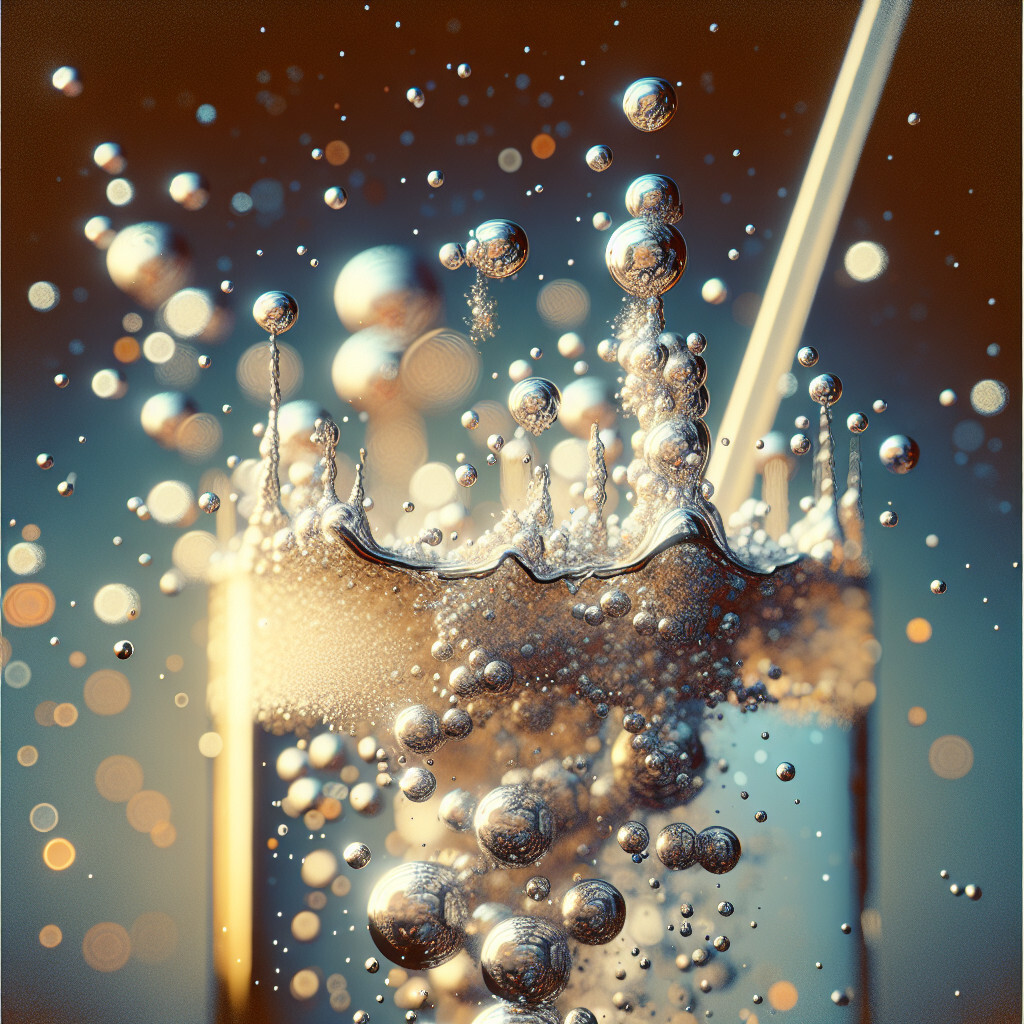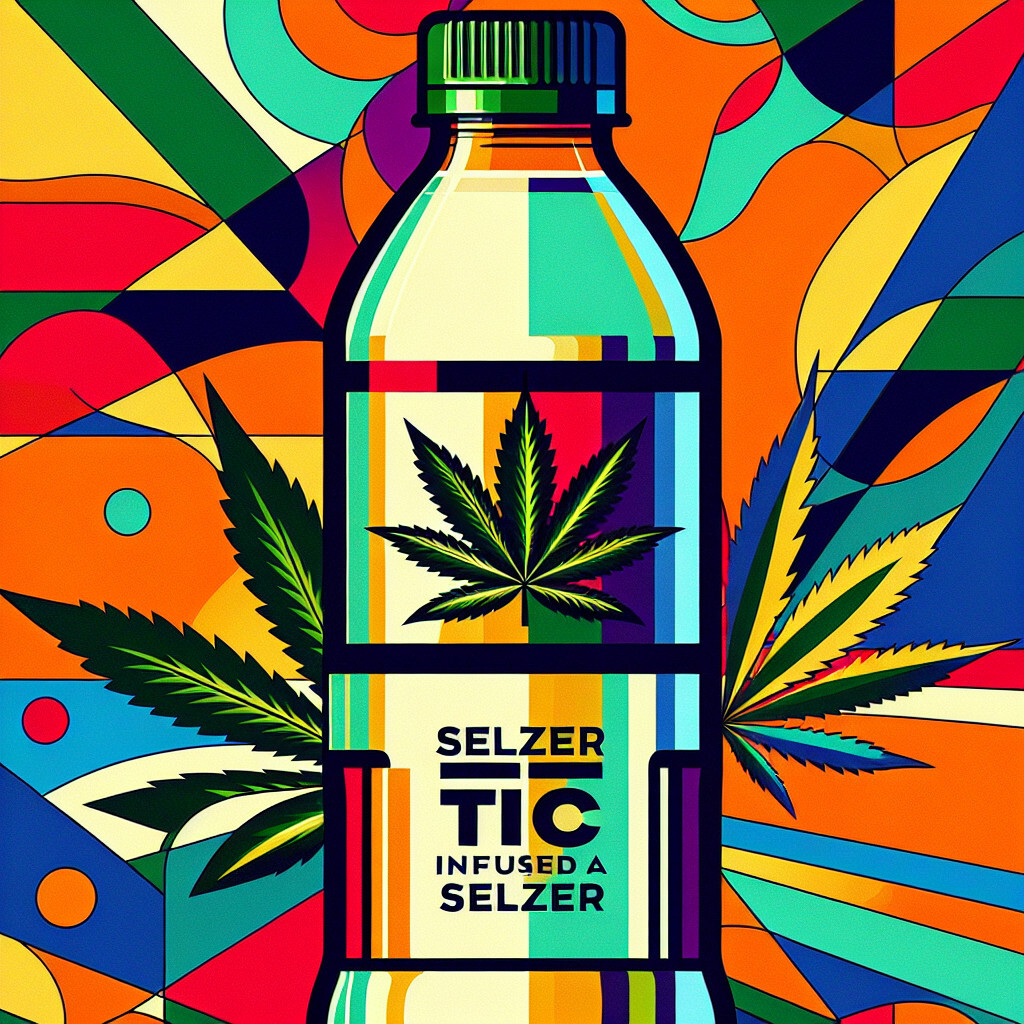-
Table of Contents
“Seltzer Water for Teeth: Sparkling Clean, Naturally Fresh!”
Introduction

Seltzer water for teeth refers to the use of carbonated water as a beverage choice in relation to oral health. While it’s a popular alternative to sugary drinks, its effects on teeth have been a subject of discussion. The carbonation process makes the water more acidic, which can potentially affect the tooth enamel. However, when compared to other beverages, seltzer water is generally considered a safer option for teeth. It’s important to note that added flavors and sugars in some seltzer waters can lead to additional dental concerns.
The Impact of Seltzer Water on Dental Health
Seltzer water, also known as sparkling water, has gained significant popularity in recent years as a refreshing, calorie-free alternative to sugary sodas. However, amidst the effervescence and the fizz, there has been a growing concern about the impact of seltzer water on dental health. This article aims to shed light on this topic, providing an informative and formal discussion on the effects of seltzer water on teeth.
To begin with, it is essential to understand what seltzer water is. It is simply water into which carbon dioxide has been dissolved under pressure, creating a bubbly, fizzy beverage. Some brands may add minerals or flavorings, but the basic ingredient is carbonated water. The concern about seltzer water’s impact on dental health arises from the carbonation process. When carbon dioxide is dissolved in water, it forms a weak acid known as carbonic acid. This has led to speculation that seltzer water, due to its acidity, could potentially harm tooth enamel, the hard, outer layer of the teeth that protects against decay.
However, it is crucial to put this into perspective. While it is true that seltzer water is more acidic than plain water, it is significantly less acidic than other popular beverages such as sodas, fruit juices, and sports drinks. These drinks not only contain acids but also have high sugar content, which can lead to tooth decay. In contrast, seltzer water, especially the unflavored variety, does not contain sugar, making it a healthier choice for teeth compared to these other beverages.
Nevertheless, this does not mean that seltzer water is entirely harmless. Frequent consumption of any acidic drink, including seltzer water, can contribute to the gradual wear of tooth enamel over time. This process, known as dental erosion, can lead to sensitivity, discoloration, and an increased risk of cavities. Therefore, moderation is key when it comes to consuming seltzer water.
There are also ways to mitigate the potential harm of seltzer water on dental health. One effective strategy is to consume it with meals. This is because eating stimulates the production of saliva, which helps to neutralize acids and protect tooth enamel. Additionally, using a straw can help to minimize the contact of the acidic beverage with the teeth. It is also advisable to avoid brushing teeth immediately after consuming seltzer water, as this can further erode the softened enamel.
In conclusion, while seltzer water is more acidic than plain water and can contribute to dental erosion if consumed excessively, it is still a healthier choice for teeth compared to sugary and highly acidic beverages. As with most things, moderation and proper oral hygiene practices are key to maintaining good dental health. Therefore, if you enjoy the fizz and effervescence of seltzer water, there is no need to give it up entirely. Instead, be mindful of your consumption, use strategies to protect your teeth, and continue to maintain regular dental check-ups. This way, you can enjoy your bubbly beverage without compromising your dental health.
Understanding the Effects of Seltzer Water on Tooth Enamel
Seltzer water, also known as sparkling water, has gained significant popularity in recent years as a refreshing, calorie-free alternative to sugary sodas. However, amidst the effervescence and the fizz, there has been a growing concern about the potential effects of seltzer water on tooth enamel. This article aims to provide an understanding of these effects, based on scientific research and expert opinions.
Tooth enamel, the hard, outer layer of our teeth, is primarily composed of minerals and is considered the hardest substance in the human body. Despite its strength, enamel is susceptible to erosion from acids. This is where the concern with seltzer water arises. Seltzer water, due to its carbonation process, contains carbonic acid, which can potentially erode tooth enamel over time.
However, it’s important to note that not all acids are created equal. The acid in seltzer water is weak compared to other acidic beverages. For instance, the pH level of seltzer water is around 5, which is less acidic than soft drinks, which typically have a pH level of 2.5 to 3.5. The lower the pH level, the more acidic the substance, and the more harmful it can be to tooth enamel.
Moreover, a study published in the Journal of Oral Rehabilitation found that while sparkling water is slightly more erosive than still water, it is 100 times less erosive than sugary soft drinks. This suggests that while seltzer water is not entirely harmless, its potential harm is significantly less than that of other popular beverages.
However, this does not mean that one can consume seltzer water without any consideration for dental health. Certain factors can increase the potential for enamel erosion. For example, sipping on seltzer water throughout the day, especially without food, can increase the time that teeth are exposed to the acid in the water. Additionally, the risk is higher for individuals with reduced saliva flow or dry mouth, as saliva helps neutralize acids and protect enamel.
Furthermore, flavored seltzer waters often contain additional acids, such as citric or phosphoric acid, which can further contribute to enamel erosion. Therefore, it is advisable to opt for plain seltzer water whenever possible and to consume it in moderation.
In conclusion, while seltzer water does contain acid that can potentially erode tooth enamel, its impact is significantly less than that of other acidic beverages, such as soft drinks. To minimize potential harm, it is recommended to consume seltzer water in moderation, preferably with meals, and to maintain good oral hygiene practices, such as regular brushing and flossing.
It’s also worth noting that regular check-ups with a dentist are crucial for maintaining oral health. A dental professional can provide personalized advice based on individual oral health status and habits. Therefore, while seltzer water can be enjoyed as part of a balanced lifestyle, it should not replace regular dental care or the consumption of still water, which remains the best beverage for overall health, including oral health.
Seltzer Water vs. Regular Water: Which is Better for Your Teeth?
Seltzer water, also known as sparkling water, has gained significant popularity in recent years due to its refreshing taste and perceived health benefits. However, a question that often arises is whether seltzer water is as beneficial for oral health as regular water. This article aims to shed light on this topic by comparing the effects of seltzer water and regular water on teeth.
Seltzer water is essentially water that has been carbonated, meaning it has been infused with carbon dioxide under pressure. This process gives the water its characteristic fizz and tangy taste. Some brands of seltzer water also add minerals or natural flavors for an extra kick. On the other hand, regular water, also known as still water, is free from any added gases or flavors.
When it comes to oral health, the primary concern with seltzer water is its acidity. The carbonation process lowers the pH of the water, making it more acidic than regular water. Acidic beverages, including seltzer water, can potentially harm the teeth by eroding the enamel, the hard, protective outer layer of the teeth. Enamel erosion can lead to tooth sensitivity, discoloration, and an increased risk of cavities.
However, it’s important to note that not all seltzer waters are created equal. The acidity of seltzer water can vary greatly depending on the brand and any added ingredients. For instance, seltzer water flavored with citrus fruits like lemon or lime tends to be more acidic and therefore potentially more harmful to the teeth.
In contrast, regular water has a neutral pH and does not pose any risk to the enamel. In fact, drinking water can actually benefit oral health by washing away food particles and neutralizing acids in the mouth, thereby reducing the risk of cavities. Furthermore, many public water supplies are fluoridated, which can help strengthen the enamel and prevent tooth decay.
Despite the potential risks associated with its acidity, seltzer water is still a far better choice for oral health than sugary drinks like soda or juice. These beverages not only contain acids but also provide a rich source of sugar for harmful oral bacteria, leading to both enamel erosion and cavities.
In conclusion, while seltzer water is slightly more acidic than regular water and could potentially harm the enamel if consumed in excess, it is still a relatively tooth-friendly beverage, especially when compared to sugary drinks. To minimize any potential harm, it’s recommended to choose plain seltzer water over flavored varieties, drink it in moderation, and rinse the mouth with regular water after consumption. As always, maintaining good oral hygiene practices, such as brushing and flossing daily, is the best defense against tooth decay and other oral health problems.
The Truth about Drinking Seltzer Water: Is it Damaging Your Teeth?
Seltzer water, also known as sparkling water, has gained significant popularity in recent years. Its refreshing taste and effervescence make it an appealing alternative to still water, particularly for those seeking to reduce their intake of sugary sodas. However, amidst its rising fame, a question has emerged: is seltzer water damaging your teeth?
To answer this question, it is essential to understand what seltzer water is. It is simply water into which carbon dioxide has been dissolved under pressure, creating a fizzy drink. It does not contain any sugars, salts, or calories, making it a healthier choice compared to sugary beverages. However, the introduction of carbon dioxide creates carbonic acid, which can potentially affect the teeth.
The primary concern with seltzer water is its acidity. The carbonic acid in seltzer water lowers the drink’s pH, making it more acidic than regular water. Acidic environments in the mouth can erode tooth enamel, the hard, protective outer layer of the teeth. Once this enamel is worn away, it does not regenerate, leading to increased sensitivity and susceptibility to cavities.
However, it’s important to note that the acidity of seltzer water is much less than that of other popular beverages. For instance, orange juice and cola, both of which are often consumed without a second thought to their impact on dental health, are significantly more acidic than seltzer water. Even certain types of bottled water have been found to have a lower pH (and thus higher acidity) than seltzer water.
Moreover, the human body has a remarkable ability to neutralize acids. Saliva, in particular, plays a crucial role in maintaining a balanced pH in the mouth, helping to counteract the effects of acidic foods and drinks. Regular hydration also aids in maintaining this balance, and drinking seltzer water can contribute to overall hydration levels.
That said, moderation is key. While seltzer water is less damaging than many other beverages, excessive consumption can still contribute to enamel erosion over time. It’s also worth noting that not all sparkling waters are created equal. Some brands add citric acid or natural flavors to their products, which can increase their acidity. Therefore, it’s always a good idea to check the label before purchasing.
To further mitigate any potential harm, consider drinking seltzer water with meals rather than sipping it throughout the day. This approach reduces the time that your teeth are exposed to the drink’s acidity. Using a straw can also help by directing the liquid towards the back of the mouth and away from the teeth.
In conclusion, while seltzer water is slightly more acidic than regular water, it is far less damaging to teeth than many other common beverages. Its impact on dental health is likely minimal, especially when consumed in moderation and as part of a balanced diet. However, as with any food or drink, it’s important to pay attention to your body and consult with a healthcare professional if you have any concerns. So, go ahead and enjoy that refreshing fizz, but remember to do so responsibly.
Q&A
Question 1: Is seltzer water bad for your teeth?
Answer: Seltzer water is generally safe for your teeth. It’s less acidic than sodas or fruit juices, but it’s slightly more acidic than regular water. Frequent consumption of seltzer water can potentially contribute to dental erosion over time, but the risk is much lower than with more acidic drinks.
Question 2: Can seltzer water help clean teeth?
Answer: Seltzer water does not have any specific teeth-cleaning properties. Regular brushing and flossing are the most effective ways to clean your teeth.
Question 3: Does seltzer water cause tooth decay?
Answer: Seltzer water does not contain sugars, which are the primary cause of tooth decay. However, its slight acidity could potentially contribute to tooth enamel erosion if consumed in large amounts over time.
Question 4: Is it safe to rinse your mouth with seltzer water?
Answer: Yes, it’s safe to rinse your mouth with seltzer water. However, it’s not a substitute for a proper oral hygiene routine, which should include brushing twice a day and flossing daily.
Conclusion
Seltzer water, despite being a healthier alternative to sugary sodas, can still potentially harm teeth over time due to its acidity. However, it is less damaging than other carbonated drinks and can be consumed in moderation without significant risk to dental health. Regular and thorough oral hygiene can mitigate most of the potential harm.






